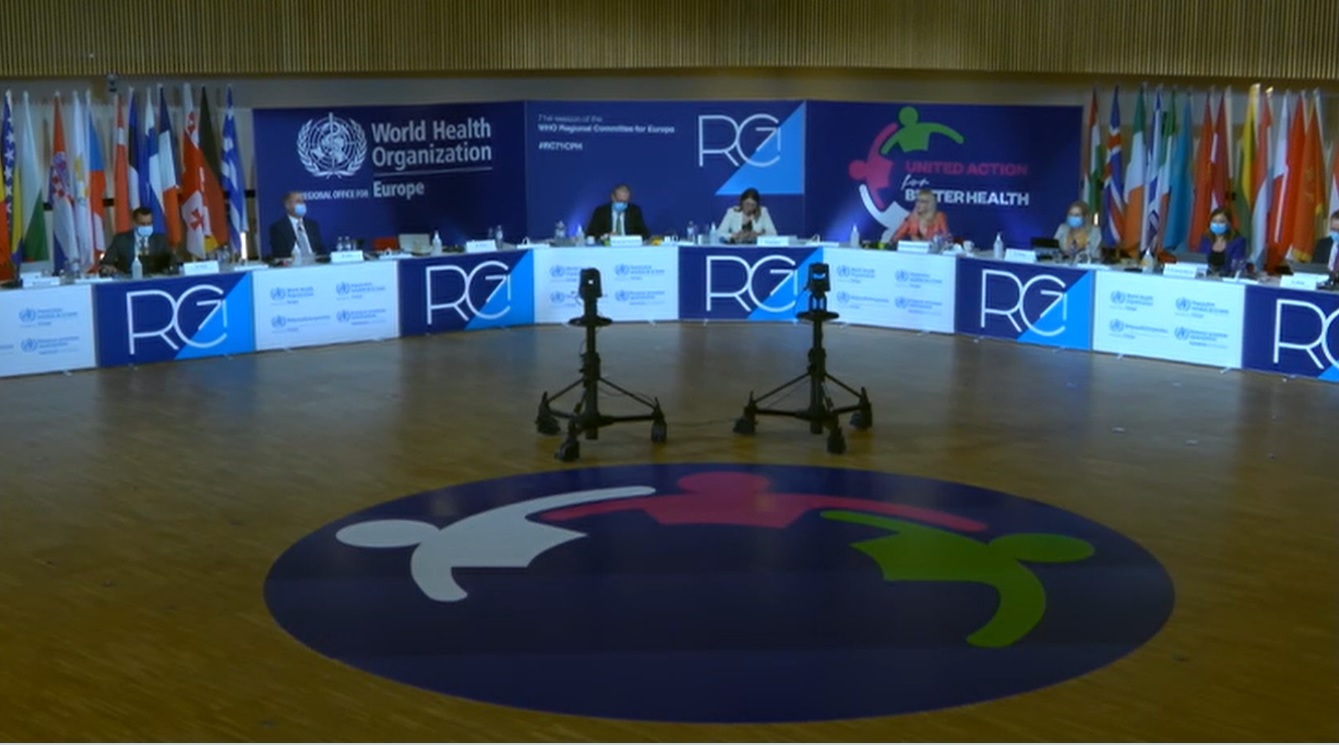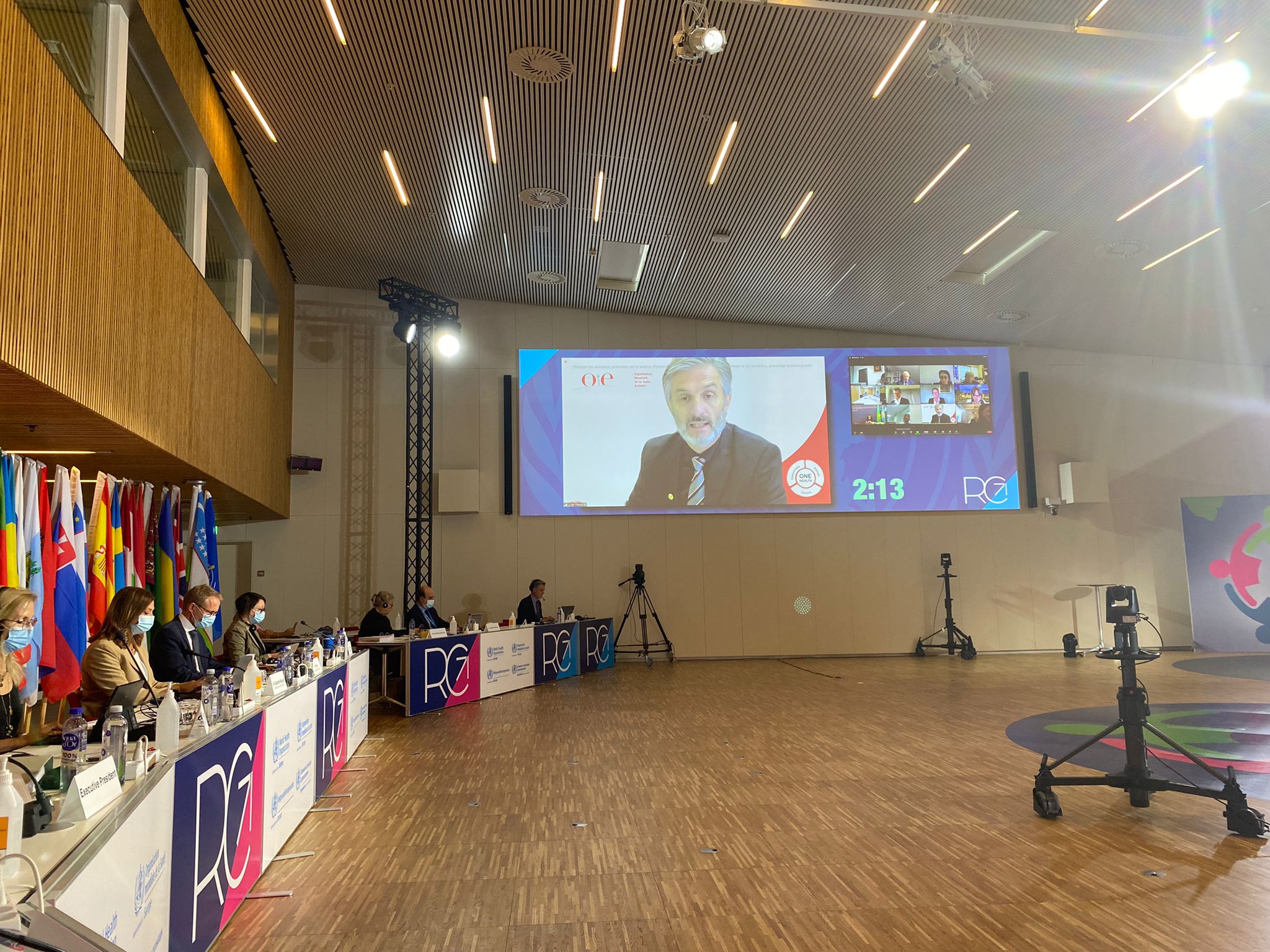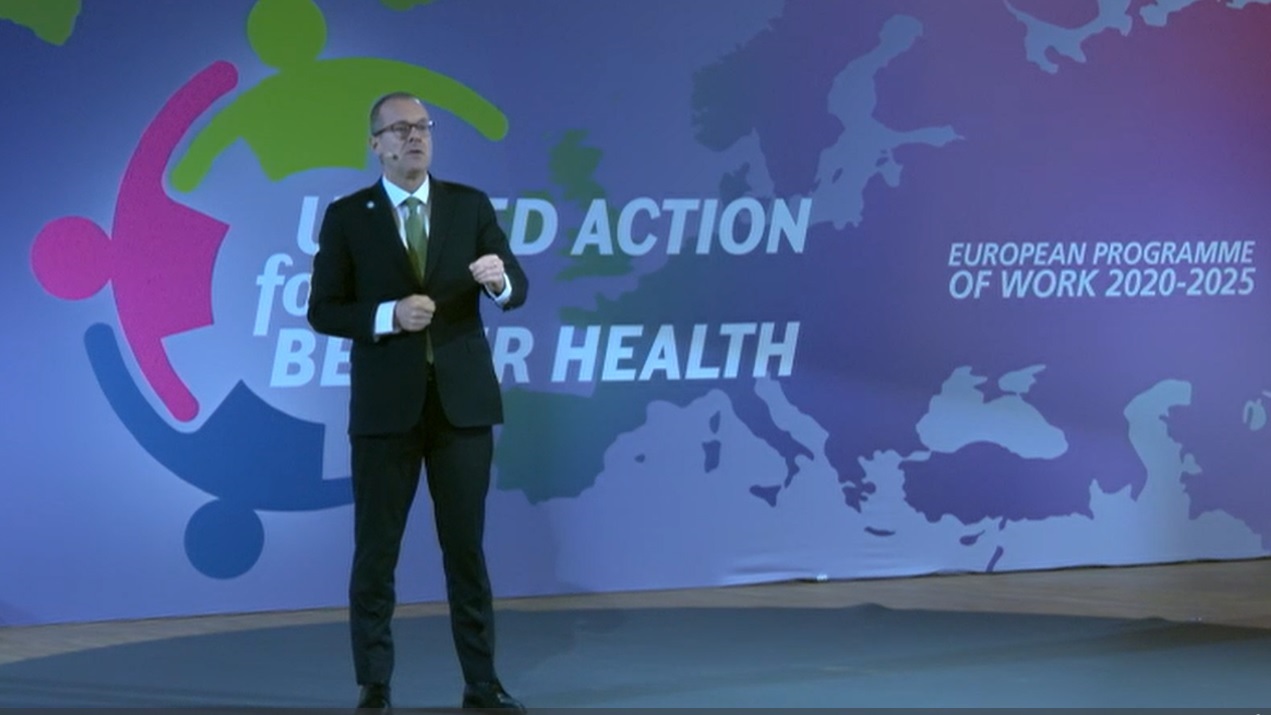MOSCOW, September 14. /OIE/. Dr Budimir Plavsic, the OIE Regional Representative for Europe delivered a statement at the 71st session of the WHO Regional Committee for Europe. The session is organized as a virtual event from 13th to 15th of September.
During the session health ministers and high-level representatives of the 53 Member States of the WHO Regional Committee for Europe as well as partnering international organizations and representatives of civil society discuss current health issues and set the direction for future activities.
Opening the session, Dr Hans Kluge, the WHO Regional Director for Europe, underlined the power of a strong partnership, interregional and multisectoral cooperation, which is highly important for overcoming current public health challenges. This vision was endorsed by the other participants of the session.
“If we act urgently on the public health crisis, and in partnerships of all health professions using a One Health approach, and pull out the planet of the emergency, we can save lives and reduce the burden on health systems – not only human health which is the highest priority, but also animal health and environmental health, all well conceded and inter-dependent”, – said Dr Budimir Plavsic.
The statement of the OIE Regional Representative was suited under the agenda item “COVID-19 lessons learned: getting ready for the next pandemic”. Dr Plavsic gave an overview on the OIE contribution in the COVID-19 management and the development of pandemic preparedness programs, such as the OIE Wildlife Health Framework.
Dr Plavsic also marked the importance of close partnership within the Tripartite Alliance (OIE, WHO and FAO) in the European region. For this purpose, a new Regional One Health Coordination Mechanism for Europe was established in April 2021.
“From the beginning of COVID-19 crisis, the OIE was fully committed to support our public health colleagues and implemented a lot of concrete activities in areas under our mandate, developed specific guidelines and recommendations for Veterinary Services, participated in joint working groups and field missions with the WHO”, – noticed the OIE Regional Representative.
“Firstly, we must fully recognize the interconnections between the health of humans, animals, plants and the planet – environment, biodiversity and climate above all. And secondly, the resulting One Health policy we propose must in turn be intimately integrated in a wider and coherent policy framework, comprising economic and financial, technological, social and international policies”, – declared Professor Mario Monti, Chair of the Pan-European Commission on Health and Sustainable Development in his statement to the press released before the session.
Dr Vladimir Rakhmanin, the FAO Assistant Director-General, Regional Representative for Europe and Central Asia, noticed the need for further development of practical instruments and programs within the One Health concept.


